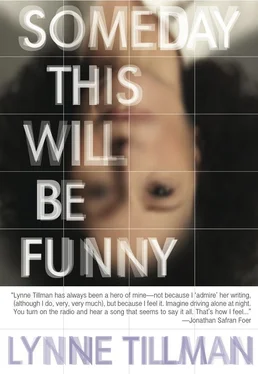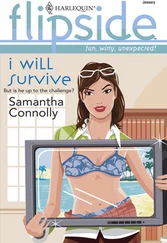At last. To last. Last remains. What lasts
remains. What, last. Shroud of Turin, Torino
mio, home to Primo, Levi knew the shroud.
In Clay’s sophomore English classes, in which the students read George Eliot’s The Mill on the Floss and Edith Wharton’s Ethan Frome , his charges contested the rules for punctuation and grammar and argued for spellings and neologisms they used on the Internet and in text messaging. They preferred shorthand, acronyms, to regular English, they wanted speed. He argued for communication, commonality, and clarity, the three C’s, for knowing rules and then breaking them consciously, even conscientiously. He attempted to engage them, as he was engaged, in the beauties and mysteries of the history that lives in all languages. It’s present, it’s still available, he’d say. And, by tracing the root of a word to its origin in Latin, Greek, or Sanskrit, and then by delving into its etymology, they could find how meanings had shifted over the years through usage. A few students caught his fervor, he thought, and who knew what would happen to them as they grew up, maybe they’d discover that love, that attachment. Curiously, there were many more new words each year, an explosion added to recent editions of dictionaries, more proportionately than had previously entered editions of the tomes he revered, and yet he remembered, always, what the words once meant, their first meanings. Cornelia told him it was another way he hung on to the past, and grammar countered his internal mess.
The problem is proportion, Clay thought, how to live proportionately. He passed the bakery on his way home, maybe he’d buy cinnamon buns for him and Cornelia for breakfast, and with an image of the pastries and her at the table, so that he could already taste morning in his mouth, he entered the store. It was busy as usual, and Clay waited on line, listening for the casual banter of the bakers, and when he drew nearer to the long counter, he overheard Joey the baker’s son.
— I’d kill all of them, nuke ’em, torture’s too good for them.
Clay continued to wait, suspended in place, breathing in the bakery’s perfume, when finally he reached the front of the line, where the baker’s son smiled warmly, the way he always did.
— I got you the recipe, you pasty-faced poet, Joey said.
He always teased him, ever since they were kids. Clay thanked him, smiled, and asked for two cinnamon buns, and then Joey handed him the famous recipe for sourdough bread, which in their family’s version was littered with salty olive pieces. The cinnamon buns were still hot, fragrant. Fresh, Clay thought, fresh is a hard word to use, fresh or refreshed. There were suggestions, associations, and connotations always to words, he should stress this more to his students, because the connotations of a word often meant as much as its denotation, sometimes more, and there was ambiguity, ambiguity thrives, because words were the same as life.
Traces, stains, call it noir, in the shadows,
torture for us. And the child, the hooded
childhood. Fresh ambiguity to contradict
contradictions, refresh
what remains somewhere else.
The beat cops stationed themselves on the same corner, at the same time, so in a way they made themselves targets or spectacles, Clay thought, or even, by their presence, drew enraged, desperate civilians to them, like a recipe for disaster.
Walking home, mostly oblivious to the familiar streets, Clay looked over the ingredients. A teaspoon of balsamic vinegar, that may have been the secret the baker’s family treasured for generations. Or the molasses and tablespoon of rum, that might have been their innovation. Cornelia wasn’t in the apartment when he arrived home, she was the one who wanted the recipe, and the rooms felt emptier than usual.
He boiled water, brewed tea, opened the newspaper, couldn’t look at the pictures or read the words, stared at the cabinets, they needed fresh paint. He’d cook tonight, a beef stew, because at the end of the day, he remembered the woman saying, everyone wants someone to cook for them. He stood up and, without really thinking, opened a kitchen drawer and tossed the recipe in the back.
Marvin paused at the entrance of the Dakota. He scanned it and willed himself on. A stout, white doorman saluted, Good afternoon, Mr. Gaye, go right in, Mr. Lennon is expecting you, and Marvin faded into the recesses of the legendary building. “Mama, there’s too many of you crying,” the doorman awkwardly sang.
In a plush elevator, sort of a confessional, Marvin sank onto a banquette. Rosemary’s Baby was heavy, he thought. The legs that appeared to start at his waist felt useless. He stroked the velvet cushion beneath him. Sweet.
John jumped up from the grand, making a picture with those wire shades and babydoll smile. “Hey, Marvin, what’s going on?” Ironic but it’s cool. John has dug Marvin forever, before “Let’s Get It On,” maybe after hearing “Can I Get A Witness?” I love too hard, my friends sometime say, but I believe, I believe, that a woman should be loved that way, Can I get a witness. Marvin Gaye was out of John’s reach in 1963. Witness, witness. Then the Fab Four arrived in New York for the Ed Sullivan Show. John phoned into Murray the K’s radio show. “Hey, Marvin, did you know — I asked him to play ‘Pride and Joy.’” John sings, “Pride and joy, baby boy, pride and joy, telling the world, you’re my pride and joy.” Marvin’s embarrassed.
It’s 1979, and Marvin has tumbled into his dark ages, spiritually, he’d say; psychologically, John’d say. Marvin tells John: “I’m splitting to London, I’m all played out, this business is killing me.” He also hears himself admit: “I don’t know about the duets, John. I’m fucked up.” Marvin can usually open up some to John, something about their backgrounds, even the primal scream thing. We all have our demons. Mother, you had me, but I never had you. Mama don’t go.
Marvin’s talking but can’t get Jackie Wilson to leave his head. You never know, you’re on top, and then zero. Last week Marvin visited a hole in the ground, the rest home where Jackie, Mr. Excitement, lay in a vegetative state. Withering, shrinking, ugly. Jackie shouldn’t be ugly. The listless attendant told Marvin that Jackie couldn’t hear anything, but Marvin sang to him, anyway.
John’s hippie-dippy male secretary hands Marvin a mug of tea, sweet and dark. Ain’t this the life, white grand, white couch. Marvin kicks back, the weed relaxing him. Jackie was singing his hit “Lonely Teardrops” when he collapsed, Dick Clark saw Jackie drop, and hit his head real hard on the stage, and that was it — over, man — in a coma almost five years. Jackie danced like a boxer, like Joe Louis, man, he could move. “In the place I was after Tammi died. I didn’t want to sing, I couldn’t.”
“You and she weren’t.…” John says.
“It wasn’t like that.” Marvin watches something behind John. “She was young and good, so good.”
“I’m no Tammi Terrell,” John says.
“Man, you’re so right, ‘woman is the maker of the world.’” John laughs and tells Marvin he wants to find a groove, a straight-ahead sound, round up the best sideman, a top rhythm section, with a bass player like James Jamerson (Marvin knows there’s no-one like him around, either), and turn a lyric like “Love is wanting to be loved” funky. Real, on the money, no bullshit. John’s tired of the bullshit. His cover of Ben E. King’s “Stand by Me” was pathetic, but Marvin doesn’t say it. He doesn’t say he’s dying for the kind of respect John gets. Marvin starts to croon, “Lonely teardrops, lonely teardrops,” and his palms tap his thighs. He stands, John walks to the piano, Marvin follows, swaying a little. “Come home, come home, just say you will, my heart is fine, just give me another chance for our romance, every day you’ve been away you know my heart does nothing but burn.” John reaches for the lines, Marvin’s already there.
Читать дальше












